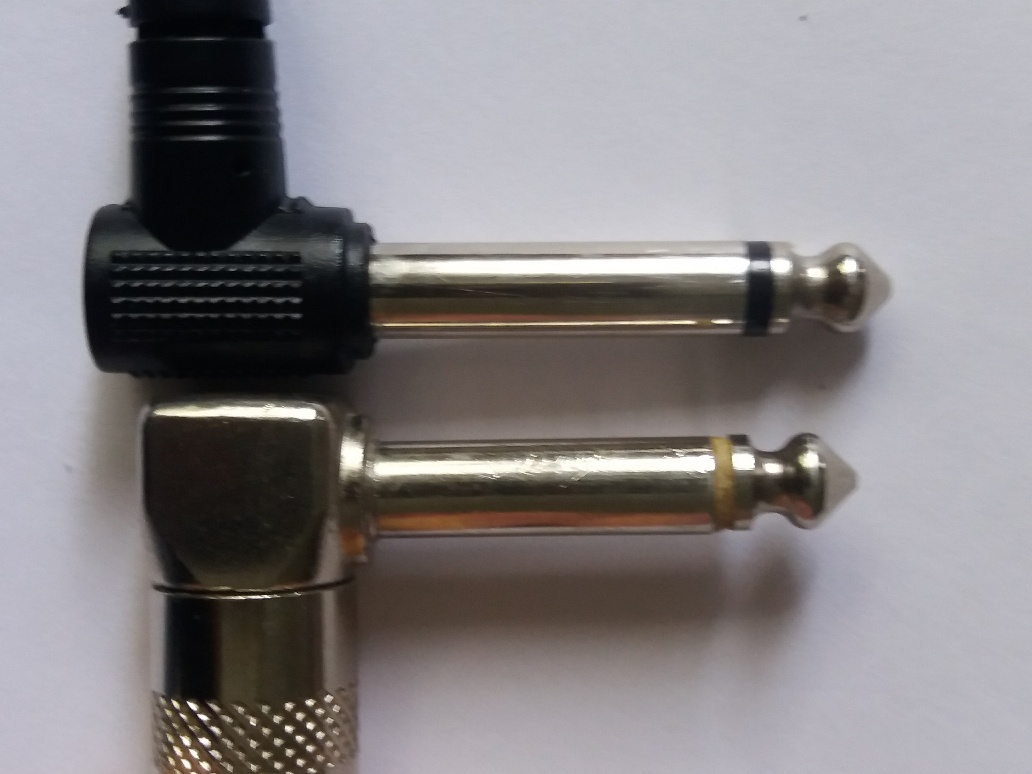Since I bought a multipack of cheap patch cables for use between pedals I've been getting some small electric shocks from the guitar strings and pedals themselves, as well as no sound from the amp.
The first time I just replaced a cable through process of elimination and figured it was a faulty soldering job in it... now after the 3rd cable to have caused it I checked the continuity between tips and sleeves of all three cables and all seem OK so made me wonder why replacing these cables made any difference.
One thing I did notice is that the jacks on these cables are 2mm to 3mm longer than those on any other brand of cable I own and thus the sleeve is pushed further into the pedal. Could it be that the sleeve of the jack is coming into contact with the tip's contact in the socket in the pedal? This would be bridging ground and live and lead to no sound and a shock, wouldn't it? In the attached image the black cable is the offending cheap item versus another of my 'working' cables.
I'm just hoping someone can confirm that could cause the problem and whether anyone else has experierenced it before I make a journey to the shop (a well established guitar shop) to complain.
Thanks in advance, internet!!

